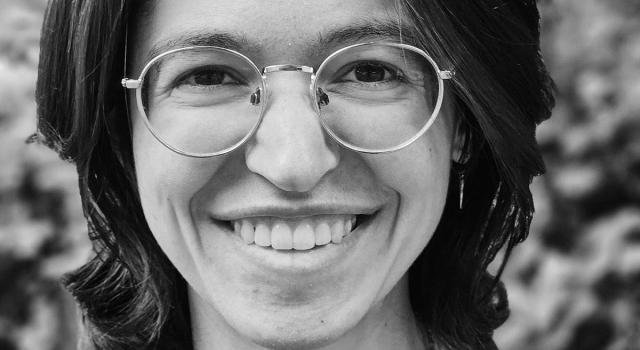Introducing Professor of Mathematics Jeffrey Barton

Hampshire College is pleased to welcome a substantial cohort of new professors to campus to support its growing enrollment and incoming fall class.
Among them is Professor of Mathematics Jeffrey Barton, whose research lies at the intersection of math and political science. Professor Barton's appointment is integral to the College's transdisciplinary approach for faculty hiring that focuses on bringing together different fields and disciplines in support of key areas of student inquiry. Barton’s teaching interests are mathematical modeling, probability, statistics, the mathematics of fairness, and facilitating student collaborations with business and industry partners.
What are you passionate about when it comes to your work?
I love working with students of all levels and abilities, and I have a particular fondness for sharing mathematics with students who have not had great experiences in the subject.
At its heart, mathematics is about really interesting ideas, and everyone can both understand and enjoy them. To be good at mathematics one doesn’t need to be good at mental arithmetic or algebra — all that’s required is curiosity, determination, and a willingness to be patient with both problems and oneself.
What is your teaching experience?
I began my teaching career as a mathematics tutor while I was an undergraduate at Louisiana State University. I continued teaching throughout graduate school, where I served as a teaching assistant in the Emerging Scholars Program, an intensive calculus enrichment experience for historically underserved populations in STEM.
After graduate school, I took a position at Birmingham-Southern, a small liberal arts college in Alabama. Over the course of my 24 years there, I enjoyed developing and teaching a wide variety of mathematics classes. I particularly enjoyed helping to expand the applied offerings there to include mathematical finance, introduction to mathematical modeling, and a project-based course that paired teams of students with industry partners who had real quantitative problems they wanted solved.
Tell us about some of the research you’ve conducted.
As an outgrowth of a course I designed for non-mathematics majors, I published an introductory mathematical modeling textbook with John Wiley & Sons titled Models for Life: An Introduction to Discrete Mathematical Modeling with Microsoft Office Excel. The idea of the book is to engage students with authentic, relevant, and accessible applications first and then develop the necessary mathematics to answer interesting questions about them. The applications include the spread of infectious diseases, population growth, and ranking websites for internet searches.
My current research is on the mathematics of gerrymandering. My recent paper in Mathematical Social Sciences establishes a new standard for determining the fair number of seats a party should win in single-member plurality elections. I’m currently collaborating with Jon Eguia, an economist and political scientist at Michigan State University, on a paper where we show how to resolve the partisan advantage in a districting map into the individual contributions of a variety of factors.
What are you looking forward to at Hampshire?
I’m looking forward to contributing to the reestablishment of the presence of mathematics at Hampshire. I’m particularly looking forward to doing so in an environment in which curiosity, self-direction, and experimentation are encouraged and supported for both students and faculty.
How do you hope to be involved with our new curricular model?
I’m excited by the idea of Learning Collaboratives, and my introductory modeling course, Models for Life, is tagged for the Environments and Change Learning Collaborative. A course I expect to offer soon, Mathematics of Fairness, will explore issues of fair division of resources, voting methods, apportionment, and gerrymandering, and it should be a great fit for Hampshire’s curriculum and the In/Justice Learning Collaborative.



